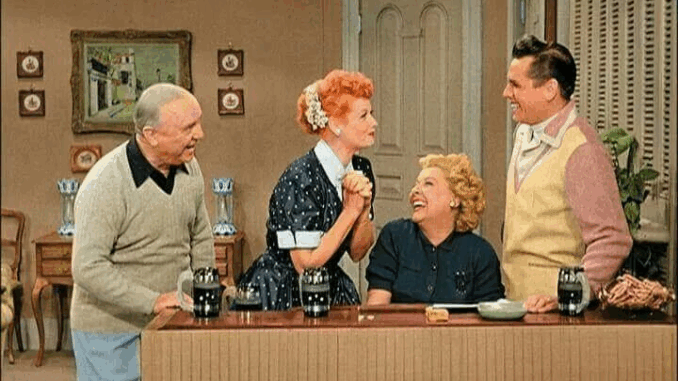
In an era dominated by streaming giants, viral TikToks, and fast-paced digital content, it might seem surprising that a black-and-white sitcom from the 1950s would capture the hearts of a new generation. Yet, Lucille Ball’s I Love Lucy is experiencing a remarkable renaissance — with Gen Z leading the charge.
But what makes Lucy Ricardo, a character created over 70 years ago, suddenly so relevant to today’s youth? Let’s explore the reasons behind this timeless appeal.
🎬 Visual Comedy That Transcends Time
One of the most straightforward reasons I Love Lucy remains popular with Gen Z is its universal, physical comedy. Lucille Ball’s legendary slapstick routines — from grape-stomping mishaps to the famous Vitameatavegamin commercial — rely on expressive body language and facial expressions rather than fast dialogue or complex plots.
This style of humor translates perfectly into short video formats favored by platforms like TikTok and Instagram Reels. Clips of Lucy’s wild antics are easily shareable, meme-able, and accessible, even without the original episode’s full context.
🤳 Relatable Chaos in a Perfectly Imperfect World
Lucy’s constant attempts to break free from societal expectations and her hilarious failures strike a chord with young viewers navigating today’s pressures. In a social media age obsessed with perfection and “highlight reels,” Lucy’s messiness, resilience, and unapologetic quirks offer a refreshing reminder that it’s okay to be flawed.
Her relentless optimism — despite endless setbacks — makes her a symbol of perseverance and authenticity that resonates strongly with Gen Z’s values.
🎥 Pop Culture Revival and Representation
The release of the 2021 biopic Being the Ricardos, starring Nicole Kidman as Lucille Ball, rekindled interest in her life and work, prompting many younger viewers to seek out the original series. Documentaries, podcasts, and retrospectives have also contributed to the resurgence.
Moreover, Lucy’s pioneering role as a woman leading her own show and co-running a major production company aligns with ongoing conversations about gender equality and representation in media. For Gen Z — a generation highly engaged in social justice issues — Lucy is both an entertainer and a feminist icon.
👗 Vintage Fashion and Retro Vibes
Fashion cycles are always turning, and Lucy’s distinctive 1950s style — the polka dots, the bright red hair, the flirty skirts — has become a popular aesthetic on social media. Influencers and content creators often pay homage to her look, blending vintage charm with modern sensibilities.
This retro revival invites younger audiences to connect not only with Lucy’s comedy but also her iconic visual identity.
🌟 Empowerment Through Laughter
Perhaps most importantly, Lucy’s fearless, boundary-pushing humor embodies a spirit of empowerment. She wasn’t afraid to be silly, to challenge norms, or to put herself in embarrassing situations — all while owning every moment.
For Gen Z, who value courage, authenticity, and breaking molds, Lucy’s example is inspiring. She proves that laughter can be a powerful tool for resilience and change.
📲 Final Thoughts
The fact that clips of I Love Lucy rack up millions of views online, and that young fans engage deeply with Lucille Ball’s story, speaks to the enduring power of classic comedy. It’s proof that even in a digital world, the joy of a well-timed pratfall or a perfectly delivered punchline is universal.
Lucille Ball’s legacy isn’t just nostalgia — it’s a living, breathing part of today’s cultural conversation, reminding us all that some legends never go out of style.
